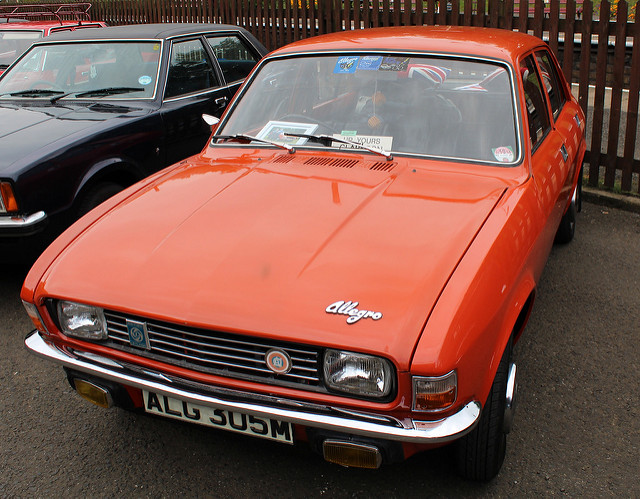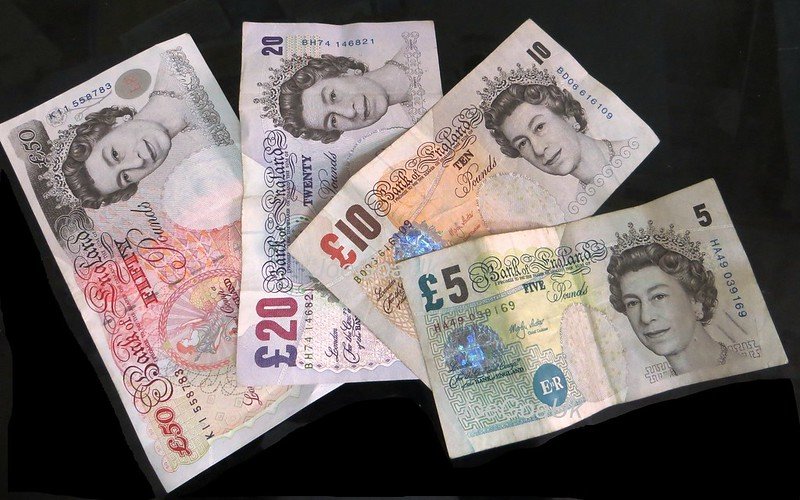Is Wetherspoons’ boss Tim Martin the UK’s highest-profile Libertarian?
What you are about to witness is the first of a series of articles looking at that most bizarrely British of phenomena, the pub chain JD Wetherspoons.
For the uninitiated, or the unBritish, JD Wetherspoons - or Wetherspoons or Spoons - is a chain of pubs with at least one in every decent sized town in the UK. They’re known for their cheap drinks, meals cooked a-la ping (in a microwave), uniformity of design and toleration of drunkenness.
British people absolutely love Wetherspoons. It’s one of the few things that still binds our increasingly divided island together. Whether you are a banker or an unemployed steelworker, you’re probably only a few days away from your next visit to Spoons.
A product of capitalism
At first glance Spoons is the epitome of the globalised capitalist world that created it. The chain was founded in 1979, the year of Margaret Thatcher’s general election victory that hailed the beginning of the age of neoliberalism. It’s the McDonalds or Starbucks of pub companies: they all look the same, they all stock the same range of products (mostly), they’re everywhere, you know what you’re getting from them in a reassuring way. As a text or work of art, Spoons is an expression of 20th century capitalism.
There is something charmingly British about Spoons. It’s a slightly less sincere, more cheap and cheerful, almost ironic, take on the identikit chain restaurant model perfected by American big business. Each Spoons has its own identity and its own charm. They all have names, which usually reflect the area where the pub is based. Somewhere in every Spoons is a board with old photographs of the local area and a few titbits of local history.
Each Spoons also sells a good range of real ale, and did so before it was cool. They don’t build their own buildings and often preserve an interesting piece of historic architecture. Spoons can be found in former cinemas, car showrooms, station cellars, theatres and banks.
Spoons’ charm
There’s an unpretentiousness to Spoons that is a welcome offset to the self-consciously modern aesthetic of many craft beer pubs and beer brands (although there are many places that excel at using this aesthetic). In an age where most pints (especially in London) cost more than £6 and the cost of meals out is forever spiralling, Spoons food and drink is always reasonably priced, usually tastes good and arrives at your table quickly.
There are little things that make Spoons charming, such as the fact that each one has an individual, brightly coloured carpet. This has prompted a blog and a book documenting them. Some Spoons are spectacular. Stand out examples are The Knights Templar in Holborn, London (a former bank), The Caley Picture House in Edinburg (a former art deco cinema) and The Palladium in Llandudno (a former theatre).
It should be said that some are not so pleasant - avoid the Surrey Docks at all costs - they can be dark, grotty and filled with alcoholics that have been barred from every other pub. Despite their surface similarities, entering an unfamiliar Spoons can be a gamble. Somehow this adds to their charm.
The politics of Tim Martin
The Wetherspoons chain is also an expression of the politics of its chairman, Tim Martin. Via the medium of op-eds in Spoon’s slightly eccentric magazine, beer mats and sometimes posters, Martin communicates his political views to a surprisingly large and captive audience. In 2017 Spoons claimed its magazine had a readership of two million, although I take that with a pinch of salt.
Martin has many opinions (a lot of them relate to how his industry should be given tax breaks and what he thinks of government health advice on alcohol consumption) but he is most well known as being a prominent supporter of Brexit. He has been photographed with both Nigel Farage and Boris Johnson, he has been name dropped by Farage as a Brexit supporter and spoke before Farage at an event in Parliament Square on the night when Britain finally left the EU.
Martin is not alone in being a pro-Leave celebrity. There were a lot of famous people who backed Brexit from Michael Caine to high profile MPs like Boris Johnson and Michael Gove who have used Brexit to revive their atrophying political careers. However, Martin was different, he served a very specific purpose for the Leave campaign and it has everything to do with the pub chain he runs.
Wetherspoons is in our communities
Martin’s boon to the Leave campaign was not the people he could convince to vote for Brexit via his magazines and beer mats, but as a well-known business leader who was vocally pro-Brexit. The business community was strongly pro-Remain, as businesses prefer regulatory continuity and Britain’s EU membership gave them tariff and bureaucracy free access to the European market, so Martin was invaluable to Leave as a business leader bucking the trend by pushing back against fears of economic woes post Brexit.
As well as showing that business was not 100% united against Brexit, what made Martin helpful for the Leave was the type of business he runs. Martin runs a pub chain, a business that people across the country understood and could see how it benefited their lives. Wetherspoons is in voters’ communities, employing people, providing a space for relaxation and meeting friends. It is a vital part of modern British life and the man in charge of it said that Brexit wasn’t going to wreck all these things.
Bankers and tech companies could come out against Brexit, but this could be shrugged off as they’re all based in London, draw their employees from a small section of society, work across national boundaries in a way that could be described as footloose and do technical things most people don’t understand or see the benefit of. I’m not saying these businesses don’t matter to the UK economy, I’m saying a lot of people don’t know that they matter.
Libertarian Brexit
The reactionary, nostalgic, nationalistic politics of Brexit don’t fit so comfortably with the image of Martin as a man who runs a business that employs a lot of immigrants. It appears that Martin is at heart a libertarian.
The Libertarians (by which I mean the right-wing Libertarians, who love to quote Ayn Rand) most people meet tend to be wealthy and work in industries such as finance and tech (ones that also tended to support Remain). Martin projects the image of a man who is more at home with the left-behinds of the small-town boozer than the jet setters of the international finance and tech world, but his politics have more in common with Ancaps than provincial Tories.
Lots of Libertarians also supported Brexit on the basis that Brexit was a campaign for less government. However, Brexit was only partly sold to the public as a way to get rid of paper pushing civil servants interfering in the world of business. It was mainly sold as a way to kick out immigrants, give the Europeans a black eye and restore the pride of Britain. “Take back control” could mean taking back control from Eurocrats creating regulations holding back the lion of British industry, or it could mean taking back control of our borders.
Libertarians and social conservatives
Martin was willing to link his Libertarian anti-Brexit stance with social conservatives such as Farage. Farage may be a Libertarian himself - his earlier UKIP manifestos contain the Libertarian dream of privatizing the NHS - but any Libertarian pretensions he had have long since faded to be replaced by a man who spreads misinformation about migrants with HIV and pals up with Donald Trump.
Martin has certainly flirted with the bellicose anti-European rhetoric of the socially conservative Brexiteer, including attention grabbing stunts such as not selling products from the EU in his pubs. However, Martin himself doesn’t come across as very socially conservative. He made pro-immigration comments in a speech he gave in Parliament Square on the night Britain left the EU, which were received poorly by the pro-Brexit audience waiting in the rain for a speech from Farage.
His business employs, especially in London, many immigrants. I’m sure he doesn’t have a BLM poster in his window and he hasn’t pre-ordered Shon Faye’s The Transgender Issue, but I can’t imagine him frothing at the mouth about how awful young people are, as the Spectator does. Mainly because young people are buying Jager-Bombs in his pubs. Maybe he does hate the woke-left, I don’t know him personally, but his Brexityness seems to come from a place of wanting less government, not hating foreigners.
Martin, Carswell and Farage
The politician Martin most reminds me of is Douglas Carswell, the former Tory MP and then UKIP defector who ultimately fell out of favour with his new party. Carswell, like Martin, seemed to be looking for a British Libertarian Party and, finding none, chose one leading the charge to reduce the amount of government in the UK.
The Carswells and Martins of this world could have had their referendum and made a purely Libertarian, anti-government argument, but this would not have won over the majority of the population without the need to link Brexit to stopping immigration and some people’s need to show Johnny Foreigner the middle finger. Farage himself said that linking Brexit to reducing immigration is when the Brexit campaign gained momentum.
Not being a Richard Littlejohn-esque social conservative shouldn’t excuse Martin for all the bad things he has done. Like a lot of Libertarians he treats people with less money (i.e. his staff) badly and would treat them worse if the law allowed it. His comments that his employees should get a job at Tesco’s, when his pubs closed (instead of him paying furlough) during the pandemic, shows a basic callousness to people he is responsible for who were losing their livelihoods. Similarly his angling for his pubs to stay open during the pandemic would have put his employees at risk.
The weakness of Libertarianism
The interesting thing about Martin’s politics is that it shows that, in the UK at least, for a Libertarian campaign to be successful it needs to align itself with a larger socially conservative movement. There isn’t enough support for Libertarian policies simply by themselves. Having less government wasn’t enough to get us out of the EU, but arguments for “taking back control” and against immigration were.
The weakness of Libertarianism in the UK can be seen in the failure of Martin’s other political campaigns. Mainly to secure a VAT reduction for the hospitality sector, a campaign that is so nakedly self-serving you must admire the fact that he argues for it with a straight face. It’s ironic that Martin’s biggest political success will probably hurt his business by making it harder to find staff and source products at the low prices his customers expect. Recently Spoons posted a loss.
The losers from Brexit
I have no sympathy for Martin because of how he treated his staff during the pandemic. It was this, more than his views on Brexit, that has moved him from the silly political eccentric to dangerous ideologue.
Like a lot of people who voted Leave, Martin will ultimately be the victim of Brexit. Whereas the people who used Martin to advance their own political standing, the Johnsons and Farages of the world, will do all right out of all of this. We are no closer to the Libertarian dream of getting rid of the government, and Martin’s tax cut for the hospitality sector isn’t going to happen either, but it will be harder for him to find staff and stock for his pubs.
"80 - Natural Copper Bar Top, Wetherspoons, Brigg" by Metal Sheets Limited is licensed under CC BY-NC-SA 2.0



















